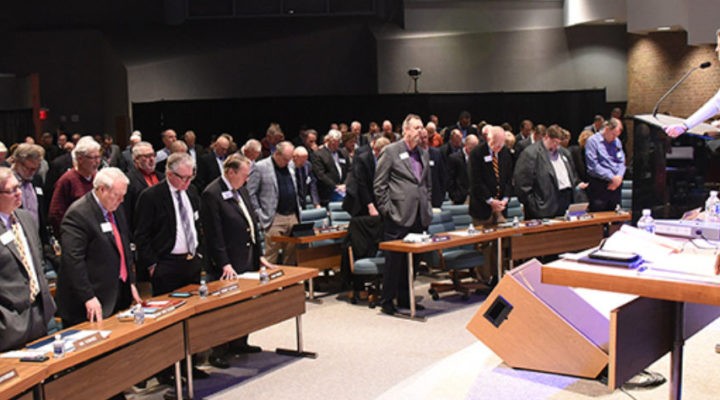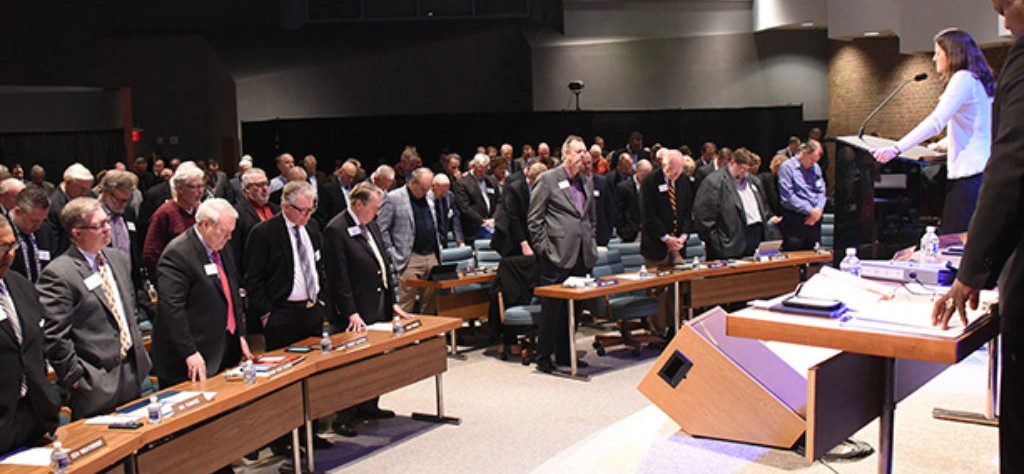For the last two years, observers have watched the Southern Baptist Convention deal with a crisis of abusive pastors. After a 2019 Houston Chronicle report, it seemed like the leadership of the denomination was becoming intent on protecting the vulnerable in their churches.
Then, after the denomination released is own 52-page report that talked little about prevention, there was silence. As weeks and months went by, it became obvious nothing serious would be done to prevent sexual abuse of children and women.

Layne Wallace
The lack of denominational action on the matter was perplexing. Due to the damaging nature of the issue to the reputation of the SBC, one would think there would be extreme urgency to solve the problem. More importantly, the systemic abuse of women and children is an affront to the gospel itself, demanding serious action. Why was there such reluctance to take decisive action?
A recently leaked letter from Russell Moore to his trustees at the SBC Ethics and Religious Liberty Commission sheds new light on this question. He wrote the letter in February 2020 in light of the creation of a second SBC task force to investigate him.
The letter is shocking and damning. It details abusive behavior toward Moore and his coworkers by members of the SBC Executive Committee. That committee, Moore claims, exonerated churches from allegations of covering up abuse in a “spur-of-the-moment” meeting. Shockingly, one of the churches had a sexual offender on staff at the time. Members of the Executive Committee simply would not treat sexual abuse with the seriousness it merits.
“That committee, Moore claims, exonerated churches from allegations of covering up abuse in a ‘spur-of-the-moment’ meeting.”
Further, after Moore and the ERLC hosted a national conference focusing on the issue of sexual abuse, members of the SBC Executive Committee threatened Moore. These tactics, Moore argues, are the kinds of tactics that have led to the culture where women and children are abused and raped women are “broken down.” That phrase is an allusion to what Paige Patterson reportedly said should happen to a woman who claimed she was raped while a student at Southwestern Baptist Theological Seminary while Patterson was president. His improper response and attitude toward her brought about his termination as president.
Moore says in his letter that some members of the SBC Executive Committee even functioned as behind-the-scenes enforcers for Patterson’s interests. When SBC President J.D. Greear noted that a congregation giving Patterson an award despite his termination from an SBC entity was unseemly, members of the Executive Committee sought instead to censure Greear. In short, if Moore or Greear spoke against Patterson or supported more significant steps to deal with the sexual abuse crisis, they would face an “investigation” or a shadow campaign wielded by members of the Executive Committee.
As Moore put it, “They want me to live in phycological terror.” Later he writes about a conversation with one of the leaders of the strategy against him, “We know we can’t take you down. All our wives and kids are with you. This is psychological warfare, to make you think twice before you do or say something.”
“All our wives and kids are with you. This is psychological warfare, to make you think twice before you do or say something.”
Moore’s letter points to some important facts about the current state of the SBC. First, Paige Patterson has enormous connections and behind-the-scenes power in the denomination despite his lack of current denominational office. Criticizing him will lead to reprisals.
Second, merely talking about sexual abuse or hosting a conference about sexual abuse will lead to “psychological warfare” in response. A leader in the SBC must tread carefully when speaking out, lest he becomes a target. Intimidation of this sort is exactly why abused people fear to speak out. These tactics are more reminiscent of Michael Corleone than of Jesus Christ.
This sort of intimidation also is a reason why there is no serious policy of prevention of sexual abuse in the SBC. If one cannot speak of an issue without reprisal, if one cannot host a conference about the issue without facing intimidation tactics, nothing serious can be done. More directly, members of the SBC’s leadership were willing to silence people who acted in good faith against systemic sexual abuse.
Layne Wallace serves as senior pastor of Rosemary Baptist Church, Roanoke Rapids, N.C., and is author of Karl Barth’s Concept of Nothingness: A Critical Evaluation.
Related articles:
Two years after the Chronicle’s expose, has anything changed to prevent clergy sexual abuse in Baptist churches? | Opinion by Layne Wallace
SBC’s new reporting process again fails clergy sex abuse survivors. What’s needed is an independent review panel | Opinion by Christa Brown
On clergy sexual abuse, CBF-BWIM safe church resources help response, education, prevention


